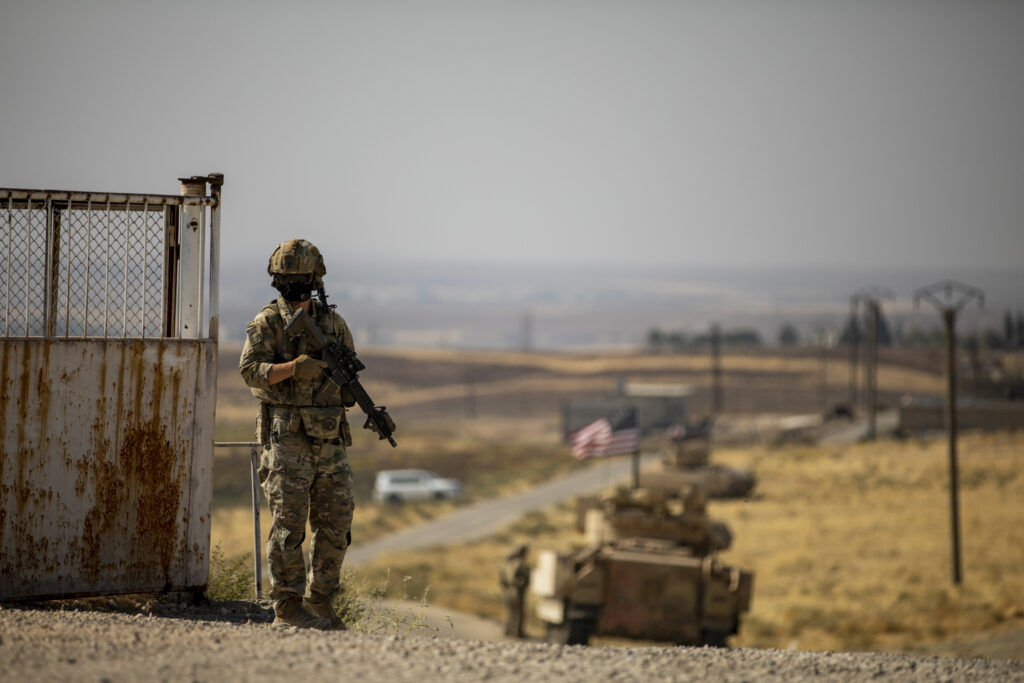
President Biden promised to respond to an attack in northeastern Jordan that killed three U.S. troops and wounded at least another 34 close to the Syrian border. Of those injured, eight were evacuated from Jordan to receive additional medical care, but they were in stable condition. The attack was carried out by Iran-backed forces in Iraq using a one-way attack drone. The base in Jordan serves as a logistics hub and houses 350 U.S. Army and Air Force personnel that are supporting coalition operations against ISIS.
The president said, “we will hold all those responsible to account at a time and in a manner of our choosing.” Secretary of Defense Lloyd Austin also released a statement saying “the President and I will not tolerate attacks on American forces, and we will take all necessary actions to defend the United States, our troops, and our interests.”
Militant activity against the U.S. began escalating sharply in October after the start of the war between Israel and Hamas, and there have been 159 attacks against U.S. forces in the region since that time. During that period, the U.S. has attempted to engage in measured responses aimed at avoiding further escalation. The loss of life for the U.S. portends a larger retaliation, but the statements from the president suggest some time will be taken to determine the appropriate course of action. While the U.S. response may be more comprehensive than recent retaliatory strikes against enemy infrastructure, the risk of escalating the conflict and drawing more U.S. troops into the fight remains present.
Several Republican lawmakers have gone as far as suggesting direct attacks against Iran. Senate Minority Leader Mitch McConnel (R-Ky.) called for “serious, crippling costs” not only on terrorist proxies in the region, but also their Iranian sponsors. Similarly, Sen. Lindsey Graham said the Biden administration should “strike targets of significance inside Iran, not only as a reprisal for the killing of our forces, but as a deterrence against future aggression.”
The Biden administration won’t take the conflict to that level at this time, which could cause recent proxy skirmishes to erupt into an all-out war. Biden showed a similar hesitancy to risk escalation over the past two years of supporting Ukraine. Despite providing a continuous flow of weapons for Kyiv, the president was often slow to increase the scope of weapons due to concerns about possibly increasing tensions between the U.S. and Moscow.
At the same time, the administration is facing pressure on the Hill over its military actions against Houthi terrorists that began attacking shipping lanes in the Red Sea in the wake of the Israel-Hamas war. A bipartisan group of 30 House lawmakers sent a letter to Biden Friday opposing what they called unauthorized U.S. military strikes in Yemen.
These conflicts will continue to pose a challenge to an administration that has been trying to reduce its military presence in the Middle East in favor of focusing on the “pacing challenge” of China.
Shaun's deep-rooted interest in military equipment continues in his role as a senior defense analyst with a focus on the United States. He played an integral role in the development of Forecast International's U.S. Defense Budget Forecast, an interactive online product that tracks Pentagon acquisition programs throughout the congressional budget process. As editor of International Military Markets – North America, Shaun has cultivated a deep understanding of the vast defense markets in the United States and Canada. He is a regular contributor to Forecast International's Defense & Security Monitor blog and has co-authored white papers on global defense spending and various military programs.




